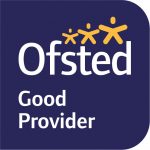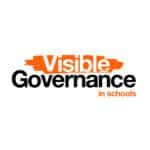SEND Information Report
Our Lady of Lourdes Catholic Primary School
Special Educational Needs and Disabilities (SEND) Information Report 2023 – 2024
Introduction
All Governing Bodies of maintained schools and nurseries have a legal duty to publish information on their website about the implementation of the Governing Body’s policy for pupils with Special Educational Needs.
Who we are
Our Lady of Lourdes is a Catholic Primary School in the village of Rottingdean, three miles East of Brighton. It serves the two Catholic parishes of Rottingdean with Woodingdean and Peacehaven, and works closely with the seven other Catholic schools in the Diocese. The catchment area stretches from Brighton into East Sussex.
Opened in 1969, it is a two storey building with two playgrounds and seven classes from Reception to Year 6. The school is part of the Deans Cluster partnership working closely with the six other schools in the group, providing a mix of primary, secondary, faith and special school experience. In recent years the school has been extensively refurbished inside and out with new enlarged classrooms, external play areas and expansion into the outside wildlife area. We continue to look as to how we can continue to improve our surroundings. The conversion of one of our classrooms into our ‘Nest’ space to support children’s learning is our latest intervention which gets up and running this year. The Reception class is the last one to have been remodelled and revitalised.
What specialist services and expertise are available at or accessed by the school?
(All the services listed below can be accessed by parents; see the Local Authority website, or ask school for details.)
Speech and Language Therapy
Educational Psychology
Occupational Therapy
Behaviour Support Services – Brighton and Hove Inclusion Support Service (BHISS) – SEMH
Sensory Needs
EMAS (Ethnic Minority Support – Linguistic)
Literacy Support Service LSS
Autistic Spectrum Condition Support Service (ASCSS) – BHISS – ASC
Seaside View Children’s Assessment Centre
Scott Unit Children’s Assessment Centre
School Nurse
CAMHS – BHISS – Family and Child Wellbeing
Virtual School for Looked After Children
Family TAF (Team Around the Family)
Safety Net; Support for children in school and wider Family Support available
Healthy Schools
AMAZE Parent Support Group
Play Therapy; 1;1 and Family Support
Yellow Kite – able to access for Trauma support
Early Help Team
Restorative Justice
Front Door for Families
Primary Mental Health Worker – BHISS; Art Therapy; 1;1 bespoke sessions, CBT
Visual Impairment Support
Hearing Impairment Support
SEND team at East Sussex
Social and Communication Provision, accessed via the EP service
Legal definition of SEN
What does “Special Educational Needs (SEN)” mean? Children with Special Educational Needs have learning difficulties or impairments that make it harder for them to learn than for most children of the same age. They might need additional or different help from that given to other children of the same age. We are an inclusive school. All applications are treated equally regardless of any particular SEND need. The school will aim to meet the needs of the child fairly, sympathetically and inclusively.
What kinds of Special Educational Needs are there?
Communication and Interaction, Cognition and Learning, Social, Mental and Emotional Health and Sensory and/or Physical impairments
Communication and Interaction: We have close links with Brighton and Hove Speech and Language Therapists (SALT) who carry out pupil assessments and work closely with our SENCO/INCO, class teachers, teaching assistants and parents to plan and implement Speech and Language Programmes. Children who have a diagnosis of Autism, are supported by out BHISS:ASC team in school and at home. Where children have specific needs around their wider communication. E.g social skills, emotional literacy, they are included within key nurture groups to help with this.
Cognition and Learning: All children’s needs are initially addressed by class Quality First teaching, which is closely monitored by the Senior Leadership Team and the Governors. Teaching Assistants will always provide in-class support and then work with a group either in or outside the classroom, dependent on need. Children may have specific learning difficulties such as dyslexia (specific learning difficulties with reading or spelling), dyscalculia (specific difficulties with maths) or dyspraxia (specific difficulties with coordination). To support children, additional programmes of study may be put in place following professional advice and recommendations. Children may be offered laptops to support their learning in the classroom setting.
Social, Mental and Emotional Health: For some children, difficulties in their social and emotional development can mean that they require additional or different provision. The school uses Play Therapy (counselling), Art Therapy (via BHISS :PMHW), Yellow Kite (attachment difficulties), in school bespoke Mentoring with key adult, The Nest and the Early Help Team. We request additional support for children and staff working alongside them from BHISS, and establish in house creative nurture groups to encourage and development children’s mental well-being, including outside learning. The introduction of Mindfulness across the school was very beneficial to children’s self-esteem, confidence and overall happiness; we continue to encourage timely reflection and stillness at key times during the day. Families may need additional support from ourselves, our colleagues at Safety Net, our Play Therapist or a Family Coach via FdFF.
Sensory and/or Physical: We work closely with outside agencies to provide support for children in our school who have sensory or physical problems. Where necessary we make adaptations to the curriculum and environment in order to make lessons and learning opportunities accessible. This may include specific uniform needs, toileting needs and sensory breaks. We have a huge bank of sensory equipment to support children in class; this includes wobble boards/cushions, stretchy bands, yoga balls/mats, fidget toys, timers and timetabled time in our sensory space in the Nest. For children who find sitting at a ‘regular’ desk a barrier to their learning, we have raised desks, seat and higher stools to support sensory regulation. School now has trampettes and quiet zones built centrally and in some rooms for children to use when needing sensory support. School has regular visits from the Hearing and Visual Impairment Teams when necessary. Children who need additional medical support with their sensory needs, e.g skin concerns, can arrange this via the office.
Accessibility
Our Accessibility plan can be found on our school website.
· Accessible toilet
· Accessible changing facilities
· Ramp
· Chair lift
How do you know if my child/young person needs extra help?
We continuously monitor and assess children’s learning and development through teacher assessments that take place at the end of each term, Teacher and TA discussion and general work scrutiny. These assessments give information about academic, social and developmental needs. At half-termly Pupil Progress Meetings, individual children and their needs are discussed with staff and the Inclusion Co-ordinator (INCO) based on assessment data and general observations. Some children are then identified as needing additional support. These children may then be placed on the Special Educational Needs (SEND) register. Parents will be informed. Support may be in the form of additional in-class support, or withdrawal intervention. All staff can raise a concern with the SENCO/INCO about a child at any time. Statutory assessments as well as specific screening programmes can by used to help identify an additional need. Transition information is shared between school and other professionals, e.g. Pre-school Special Educational Needs Service (PRESENS), the Speech and Language Service (SALT). School also encourages parents to raise their own concerns about their children. We will meet, listen and formulate an action plan to investigate which may lead to additional support if necessary.
How will staff support my child/young person?
First and foremost, Quality First Teaching is the accepted inclusive approach for all pupils. The SENCO/INCO co-ordinates provision for SEND pupils, working closely with class teachers and leading the Inclusion Team of teaching assistants (TAs) and Individual Needs Assistants (INAs). Teaching Assistants support children’s social and emotional development. TAs work either individually or with a group. These TAs have been trained to a high standard to deliver specialist SEND programmes. The SEND programmes will be developed by our SENCO/INCO. School will liaise closely with parents with regard to their child’s support and progress. This will take into account of your views and advice from outside agencies. You will be kept fully informed so that you understand what the programme contains and the frequency of delivery. Specialist TAs also run group/1:1 programmes devised by school or agencies e.g. SALT/LSS. Teachers and the SENCO/INCO regularly liaise with parents. Our SEN Governor regularly visits school and liaises with the SENCO/INCO. The SENCO/INCO presents a detailed end of year SEN report to school governors. SEND pupils are entered onto the School Provision Map. Some children may have an Individual Education Plan (IEP). Outside agencies are involved for some pupils who will also meet and discuss their needs with parents. INAs may be required to support children with higher level needs.
How will the curriculum be matched to my child/young person’s needs?
Adaptive teaching/scaffolded learning (previously referred to as ‘differentiation’ takes into account the children’s differing needs and abilities. Primarily this would be providing children with an appropriate level of scaffolded work, alongside in class resources to support them independently, however this could also be: providing additional TA support, providing learning tasks that present different levels of challenge or particular specialist support equipment for children to use i.e radio aids for pupils with Sensory Needs. A specific SEN programme that will meet the child’s needs ensuring that progress is being made at the appropriate pace and level will be planned. An appointment to meet with your class teacher or SENCO/INCO, in addition to parent’s evening can also be arranged. Home school books or a daily update from your class teacher will keep you informed on how we are working together to meet the needs of your child. There are visual resources in place in classrooms to support different learning styles. School will refer to outside agencies when necessary with your consent, for additional assessment, support, advice and programmes. You will be kept fully involved and informed throughout this process. Constant monitoring by staff leading interventions, and by teachers ensuring that your child is learning and being challenged.
How are resources allocated and matched to my child’s/young person’s Special Educational Needs?
As part of our general school budget, we receive funding to support children with Special Educational Needs. In a case where a child has very significant and/or complex needs and an Education and Health Care Plan has been issued we will make a case to the Local Authority requesting additional funding. Such funding will then be used exclusively to provide the help and support your child needs. The school receives a Special Educational Needs and Disability (SEND) budget from the Local Authority. We review this annually and the school frequently spends additional money on top of this to support our children. Needs are mapped out during meetings between the Head Teacher and the SENCO/INCO, and agreed by the Governing Body, and funding is allocated appropriately according to the level of need. Pupil Premium funding is used to support eligible pupils to ensure they make good progress. This is carefully monitored across the year. The school has a duty to publish the outcomes of this funding every year on the school website.
What training and experience have the staff supporting children with Special Educational Needs and/or Disabilities had or are having?
All teaching staff & Teaching Assistants (TAs) have regular SEN continuing professional development via INSET days and staff meetings. This has included training on how to support pupils who have autistic spectrum difficulties, speech and language difficulties, hearing difficulties, behaviour difficulties, attachment difficulties, trauma training, Developmental Language Disorder, Makaton and Epipen training. TAs have been trained to deliver specific 1:1 or small group literacy and numeracy programmes to support Quality First teaching in class, including specific programmes where advised. Most staff have been trained to deliver Mindfulness exercises and are aware of the importance of keeping pupils’ brains hydrated with constant access to water. Sloping boards, coloured overlays, wobble cushions, special handwriting pens and pencil grips are available. Each class has their own sensory needs pack to support children; some children benefit from extra bespoke sensory packages. The Clicker speech feedback IT programme is used throughout the school for those who need it backed up by Laptops to support independent learning and writing.
How are decisions made about what type and how much support my child/young person will receive?
The SENCO/INCO in consultation with the Head Teacher and Governing Body will meet to allocate support. The SENCO/INCO will then meet with you to discuss our proposal, enlist your views and provide you with a breakdown of the support we are offering your child. As all children’s needs are different we have to be flexible in the way we assess and meet their needs. We have regular meetings with senior leadership, class teachers and parents to review the needs of each child. We set SMART targets (Specific, Measureable, Achievable, Realistic and Time measured). We are flexible and will change support needed for you child according to his/her needs. It is a three way process between parent, school and outside agencies and we all work together to make sure your child is being supported in the best way possible. It is important you tell us if you think circumstances have changed so that we can adapt appropriately. Pupil voice is key to the process; wherever possible we use Pupil Conferencing, 1:1 consultations and group discussion to help inform and evaluate provision. SEND Pupil Voice is monitored and evaluated annually; all children have the opportunity to share which methods they feel support them best.
How will Our Lady of Lourdes School enable my child to be included in activities with other children, including those without SEN?
Our Lady of Lourdes School prides itself in providing an inclusive learning environment where all children, including those with SEND, are treated equally and have access to the full range of opportunities that we provide. Children have opportunities to work with other children of all abilities within their classes through the year. Our approach is to tailor learning opportunities so that they are accessible to all children through effective planning and differentiation of lessons. We aim to provide stimulating and exciting learning experiences so that all children can access learning at their individual level. The high expectations and aspirations that we have for all children in the school are extended to children with SEND. Children with SEN and disabilities are fully included in all activities throughout the day. If necessary, we provide additional support to enable this to happen, for example “meet and greet” in the morning, additional support at play times or lunch times and on all school trips. The Nest is a new space for us to extend our support for children at all times of the day.
Arrangements for consulting parents/carers and young people
Parents/carers are actively engaged at all levels of a child’s support programme. Parents/carers are able to contact the SENCO/INCO directly via phone or email, and make appointments to see specific members of staff through the school office. Children’s views and opinions are sought through the most appropriate method. This could be as a chat with the SENCO/INCO, or casual conversation with their class adults.
How are parents involved in the setting?
Our Lady of Lourdes Catholic Primary School seeks to work in a close and mutually supportive partnership with both parents and children. We communicate with parents in a variety of ways, the monthly newsletter, PING, our website along with social media output. We hold ‘meet the teacher meetings’ before the start of new academic year, maths workshops and half termly celebration of pupil’s work There are several ways you can become more involved; as a parent/grandparent/carer volunteer helper in the classroom, by joining the Parents’ Association ‘The Friends of Our Lady of Lourdes’, or by becoming elected as a Parent Governor if a vacancy arises. We conduct our annual parent survey and questionnaire where we seek your views. Parent Governor views will be sought when we review our SEN policy and provision. We have special assemblies every Friday where you will be invited to share in the success and celebration of your child’s assemblies and pray with the school family. The school also holds a variety of workshops to support you in finding out more about how we teach key skills such as phonics and maths. All classes hold a ‘Meet the Teacher’ event in the first half term. All parents are encouraged to offer their gifts to school and help with reading, sports events, trips etc.
What support will there be for my child/young person’s overall well-being?
As a faith-based school we have: an holistic education including spiritual, social and emotional development, a pupil led school council for pupils to express their views, skilled TAs delivering 1:1/small group interventions, Safety Net (an agency training Year 4/5/6 pupils with assertiveness/self-esteem training and playground buddy training), teaching resilience, empathy, co-operation and perseverance, a school nurse, a clear structured behaviour policy including Restorative Justice training, a Safeguarding Officer and clear safeguarding procedures, staff receiving regular undated training, social intervention groups, pastoral support at unstructured times (indoor wet play) and personal care support plans when necessary. The school initiated daily Mindfulness sessions across all year groups to enable children time to collect their thoughts, feelings and prepare themselves for their next session; these are regularly offered. SLT will mentor individually and groups of children. Our school Primary Mental Health offers targeted intervention packages for groups of children.
We also access physiotherapy, speech and language programmes and support from Brighton and Hove Inclusion Support Service (BHISS), Occupational Therapy and Seaside View (Brighton General Hospital), Regular Epipen training is delivered by the school nurse to all staff. A number of staff are trained in First Aid and the school has a clear medicine policy. We work closely with families whose children have additional medical needs who need support.
Modifications to the building have been made to support accessibility.
Arrangements for supporting the transition between educational phases. As Our Lady of Lourdes is a relatively small school and on one site, the transition between Key Stage 1 and Key Stage 2 is seamless as the same SENCO/INCO is still involved with the children, and all staff know all children. When transferring to Key Stage 3, all children visit their secondary school – Cardinal Newman or another secondary school – for the day. Children with SEND can sometimes make more than one visit and could be accompanied by the SENCO/INCO or Teaching Assistant. Additionally, SEND staff from Cardinal Newman school or other secondary schools also visit the school. All records are transferred to the secondary school, and the SENCO/INCO liaises closely with them.
How complaints are dealt with
Open discussion with parents/carers is actively encouraged so that concerns can be dealt with before they become a serious issue. Should complaints about staff members, systems or protocols be made, they will be fully investigated by an appropriate member of the Senior Leadership Team in accordance with the Complaints and Whistleblowing Policies which can be found on our website, or reported directly to the LADO,
Contact: Simon Strange
Phone: 01273 306980
Email: [email protected]
School website: www.ourladyoflourdesprimaryschool.co.uk
Special Educational Needs Governor: Ian Watson – contact via the school.








